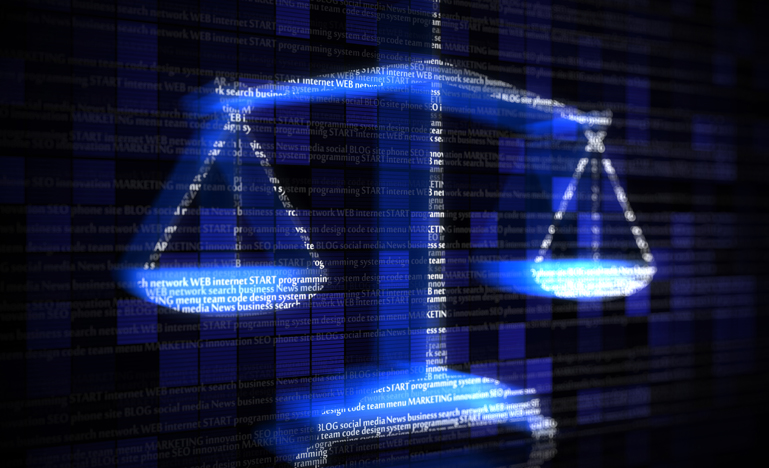Modernizing criminal justice after covid-19
Our courts play an important role in bringing a sense of solemnity to judicial proceedings. There’s a risk virtual attendance will threaten that, some lawyers warn.

A push to modernize Canada's slow-grinding system of justice is, it seems, finally under way. But while some changes are well received, critics caution against moves that would undermine the solemnity of the legal process.
In February, the federal government tabled a bill to make permanent some of the changes courts have had to make in response to the pandemic. They include using video technology for jury selection and making telewarrants easier for police and other investigative bodies to obtain.
Justice Minister David Lametti says that he has been in touch with his provincial and territorial counterparts and other actors across the justice system to monitor the impacts of the pandemic on the courts and provide support.
"Bill C-23 proposes important reforms that respond to these challenges, including changes to the telewarrant process, which will help enable greater flexibility in the use of technology and reduce the need for in-person attendance," Lametti told CBA National in an e-mailed response. "The proposed changes would allow peace officers and public officers to apply remotely for a wider range of investigative orders, all while maintaining the judicial oversight and standards that currently apply in such cases."
"While these changes are especially needed to adapt to the current circumstances posed by the pandemic, stakeholders have told us that these changes will help improve overall efficiency and have a positive impact on court operations now and in the years to come," Lametti added.
Jessyca Greenwood, a lawyer with SpringLaw PC, and a Toronto director at the Criminal Lawyers' Association, welcomes the changes, especially those around the use of video conferencing and that allow the "accused and other participants to attend their trial by video conference."
"I can envision scenarios where that means more access to justice," says Greenwood. "My hope is this means fewer delays overall, and more efficient use of court time."
Joven Narwal, the founding partner of Narwal Litigation LLP in Vancouver, says that he has concerns about remote jury selection. Removing transportation barriers may produce unintended consequences by excluding from the jury pool, for example, people who don't have the necessary hardware, bandwidth, or technical skills.
"There is a section in the legislation that requires the court to produce the location with the adequate video technology, so I am assuming that adequate funding and resources will be provided to ensure that the offering of remote jury selection does not have the effect of narrowing the pool," says Narwal, who is also a member of the executive committee of the Trial Lawyers Association of BC.
Jody Berkes, chair of the CBA's criminal justice section, worries that jury selection by video does not allow for the potential juror and accused to look at one another.
"It's a very personal thing to be a juror," says Berkes. "It's a very important process in our justice system, and one of the dangers with technology is that sometimes it takes away from the solemnity of the occasion. Testifying in a criminal trial is a very solemn things – you are there and someone's liberty is at stake."
Berkes says it's one thing to be there in person, and another to be at one's dining room table wearing pyjama bottoms. "There's not that same level of solemnity."
Narwal is particularly concerned by Section 631.1 of the bill, which would allow jury selection by "automated means."
"In my view, we must be careful about algorithms," he says. "They are not a panacea. An algorithm will just reproduce the bias of the programmer. In other words, it's bias in, bias out. Moreover, using an algorithm may allow institutions to shift the blame or hide behind the apparent random impartiality of an algorithm rather than taking responsibility for biases in the system."
When the bill reaches the committee stage in the Commons, Narwal hopes that questions around data transparency will be raised so that these algorithms can be evaluated, audited, and tested for biases.
"This kind of technological due process, with mechanisms for accountability, are essential for ensuring fairness in the use of AI," he says.
Narwal also has concerns about the expansion of telewarrants, and that they could undermine the long-hallowed in-person requirement that has been the bedrock of prior judicial authorization processes.
"From my perspective, the concerns that animated the Law Commission of Canada's report in 1983 remain alive today," says Narwal. "COVID-19 has added another layer of complexity to the eternal tension in criminal justice between investigative efficiencies and the constitutional right to be free from unreasonable search and seizure."
There are reasons why we have a robust prior judicial authorization process that includes in-person attendance requirements, he adds. It's to ensure the system isn't reduced to a rubber-stamping exercise.
"The in-person requirement is generally about bringing to bear the solemnity of the state's executive request to impede upon the privacy interests of the individual," says Narwal. "I do have a fear that the extension of the telewarrant process may result in a dilution of some of those long-hallowed presumptions that our system relied upon."
Berkes adds that he is relieved that certain extraordinary warrants that authorize significant intrusions of privacy, including types of surveillance, are explicitly left out of the bill's telewarrant provisions.
"There is an implicit recognition that with more invasive a warrant it is, the closer you are to invading someone's personal privacy, the less appropriate telewarrants are as a means for doing that," he says. "Some things need to be done in person, once again because of the solemnity."
The expansion of telewarrants is one part of the bill that could invite constitutional challenges in the future.
Narwal also noted that the bill modernizes language in the Criminal Code, changing the masculine "he" to the singular "they," and introducing some more straightforward language.
"It's an indication that the federal government has decided that the language in the Criminal Code in many places was quite antiquated, and this is a shift toward the equality of pronouns."


